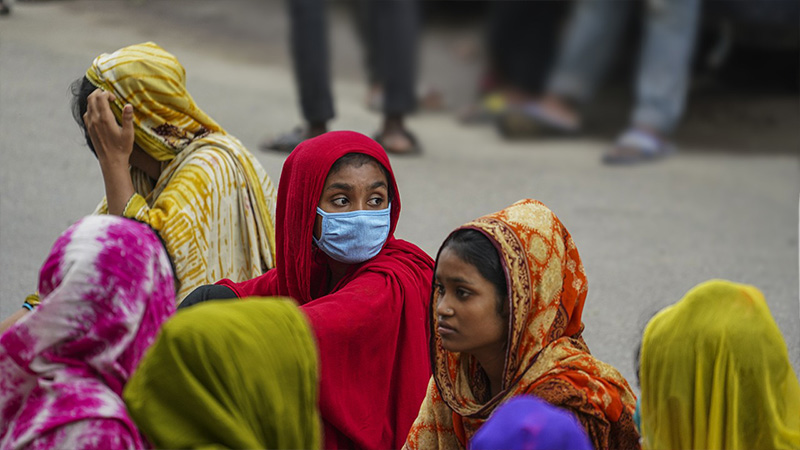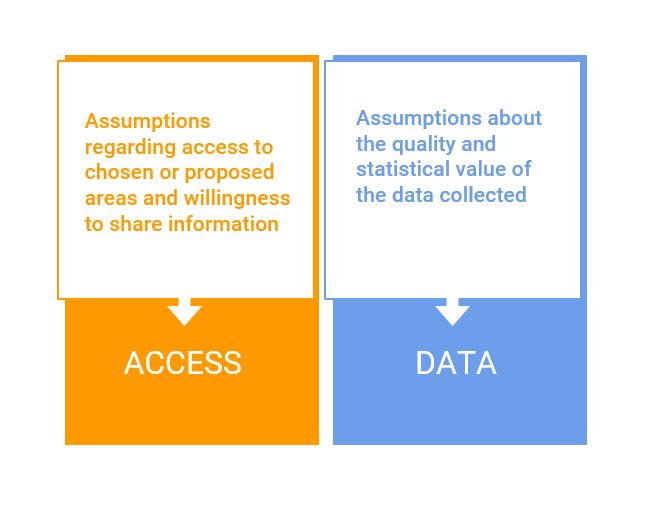GET IN TOUCH
- Please wait...

Bangladesh is on the fast track to digitization as it continues to integrate technology into the lives and livelihood of its people. However, the onset of this new digital era has brought with it a prevalence of misinformation, particularly in the form of rumors, fake news, and disinformation via both traditional and modern communication channels. The COVID-19 pandemic induced a greater surge in misinformation, as uncertainty regarding what rumors were spreading and where to acquire accurately, verified information prevailed. This situation has been further aggravated by high population density and relatively low digital literacy rates in Bangladesh, coupled with narrow channels for information dissemination. Therefore, it has become imperative to identify and address the spread of misinformation.
In order to combat this growing concern surrounding the misinformation circulating around the key issue of the COVID-19 pandemic and its health hazards, BRAC undertook the Bangladesh Digital Ecosystem Activity (BDEA), sponsored by USAID. A unique tool, the Rumour Map, was developed to map the spread of COVID-19-related information and address misinformation with relevant and verified facts and figures. The central idea behind this project was to recognize that misinformation can jeopardize positive response and can lead to exploitation and that the COVID-19 response can be enhanced by preventing the spread of misinformation and strengthening the digital space through ensuring reliable information for the general populace. LightCastle Partners was tasked with performing the after-action review of the BDEA project, titled, “USAID-BRAC Bangladesh Digital Ecosystem Activity, After Action Review”.
LightCastle conducted a mixed-method approach to carry out the after-action review of the BDEA across the Jessore, Manikganj, Rangpur, Chittagong, and Dhaka districts of Bangladesh. The team evaluated the overall Rumor Map development process and examined the project’s approach, starting from data collection to data analysis. This allowed the team to highlight the project’s success and recognize the key pain points and areas of improvement, alongside helping to align stakeholders’ points of interest. Under the guidance of BRAC, the team was also able to assess and seek out opportunities to sustainably scale up the project in the future.
The BDEA project, conducted by BRAC, attempted to gather, analyze and map the types and spread of rumors related to COVID-19. This involved collecting over 240,000 responses from across the country in rural and urban areas and mapping those responses to show rumor hotspots and the types of rumors that were circulating. This allowed the BRAC team to design and implement communication campaigns to address those rumors and their negative effects.
For the after-action review, LightCastle collaborated on numerous instances with BRAC representatives. The representatives of the data collection campaign, which was run by BRAC, helped the LightCastle team to assess the strengths and pitfalls of the questionnaire, understand their beliefs regarding the project and the spread of misinformation, and their concerns regarding further developments in the near future. In total, 7 Key Informant Interviews (KIIs) were conducted along with 4 Focus Group Discussions (FGDs), which consisted of 8 participants each, including 1 area manager, 1 district coordinator, 4 respondents, 2 shastho kormis (health workers).

The data collection process was thoroughly reviewed and split into 2 categories, namely- access which was assumptions regarding access to chosen or proposed areas and willingness to share information by respondents, and data which were assumptions about the quality and statistical value of the data collected. The analysis revealed gaps, which were addressed via the recommendations provided. The after-action review found that the overall success of the project was largely catalyzed by BRAC’s vast network, which helped to collect data in a short time. Moreover, BRAC’s strong field presence and its team coordination were instrumental in overcoming adversities brought about by the pandemic during the project.
The data collected and analyzed, along with the communication campaigns designed in this project, can help map the spread of misinformation as well as develop more effective and targeted communication in the future. As Bangladesh continues to march towards becoming a more digitized nation, the “Rumor Map” and “Data Tree” are going to become important tools to mitigate the upcoming challenges of misinformation in the digital era.
Our experts can help you solve your unique challenges